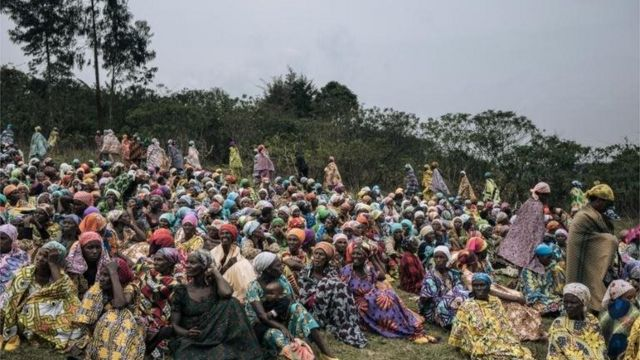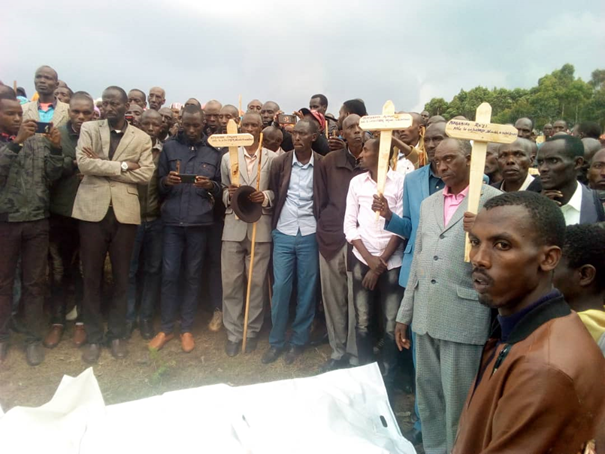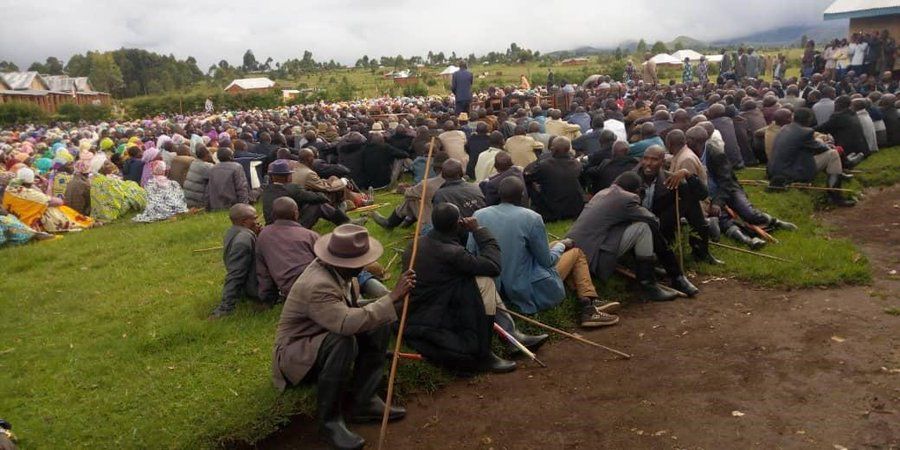The genocide of Banyamulenge (2)

Could you explain what the situation of Banyamulenge is, and what the grounds are for the current hate against them?
According to history, Banyamulenge are Congolese Tutsis of three origins (Rwanda, Burundi and Tanzania). The Banyamulenge are pastoral people who settled in the Itombwe highlands more than two centuries ago.
Since April 2017, attacks accompanied by hate speech have been systematically directed against the Banyamulenge population established in the territories of Uvira, Fizi and Mwenga (South Kivu). These attacks, carried out by various actors, including several Mai-Mai groups, Burundian rebels called RED-Tabara, and elements of the regular Congolese army, have cost the lives of more or less a thousand people, often shot down in the most horrific circumstances. Many Banyamulenge women have been subjected to (gang) rape, and other forms of sexual violence, including intimate organ mutilation. Victims of these inhumane atrocities include people of all ages and gender.
Currently, about 90% of the Banyamulenge remaining in the country are internally displaced. Rebels took their cows and their houses have been burned. Those who have not abandoned their homes are often completely surrounded by Mai-Mai groups. They cannot go to their fields or pastures because the Mai-Mai are constantly watching their movements and threaten or kill those who move beyond their habitats. There is constant danger to displaced Banyamulenge who travel to Fizi, Uvira, or Itombwe because the Mai-Mai control the access roads to these (semi-)urban centers.
The main reason for the stigmatization of the Banyamulenge is their Tutsi-like morphology. They are treated as Rwandan foreigners, as envenoms in Congo. And so they must return to Rwanda and/or accept to die in Congo.
Where do people go when they leave their houses, and when their villages are burned to the ground?
After the attacks, several thousand families moved to different locations, depending on the area. A wave moved to neighboring countries, mainly Burundi, Rwanda and Uganda, while a large majority moved to the center of Minembwe. The same is true for the displaced of Bibokoboko and Mikenge who have all moved to places close to the UN military base. They are therefore forced to congregate in the few houses that have not yet been burned.

Who should and can intervene?
In my opinion, the international community is in a position to intervene and to stop this situation. The international community should call on the Congolese government to fight against hate speech against the Congolese Tutsis in general for a lasting peace in the DRC. NGOs can help support peace and cohesion actions among the tribes in eastern DRC.
You are writing many articles, blogs, tweets on this topic. What do you like to achieve by doing so?
I seek to make known the current situation of Banyamulenge and all Congolese victims of conflicts in the DRC in order to have interventions to stop this situation. By creating Action for Peace and Liberty, we try to initiate and contribute to peace initiatives for the Eastern DRC.
How is it for you to see that your own people are so much suffering and what is your hope for them?
To be honest, it is a heavy punishment! It’s a bit like suffering from an unbearable burden. Sometimes I hate everything and feel the real bitterness of life. When I am in Europe while my family is suffering, I don’t feel the taste of life.
I am optimistic about the future of my people and my country. I know that there are peace-loving people in Congo and elsewhere. And these people will be able to support the peace efforts. Sooner or later the situation will change.

About me, Albert
Albert Gikundiro Mutware is Founder and CEO of Action for Peace and Liberty, a youth peace movement . He is Congolese, from the Banyamulenge minority in the Democratic Republic of Congo (DRC). He obtained his bachelor’s degree at the Catholic University of Bukavu in Agronomic Sciences and Leadership at the Congo Youth Leadership Institute (CLI) and is currently doing the Master in Development Studies at the International Institute of Social Studies of Erasmus University Rotterdam.
Read more
Read another interview about the genocide of the Banyamulenge here
